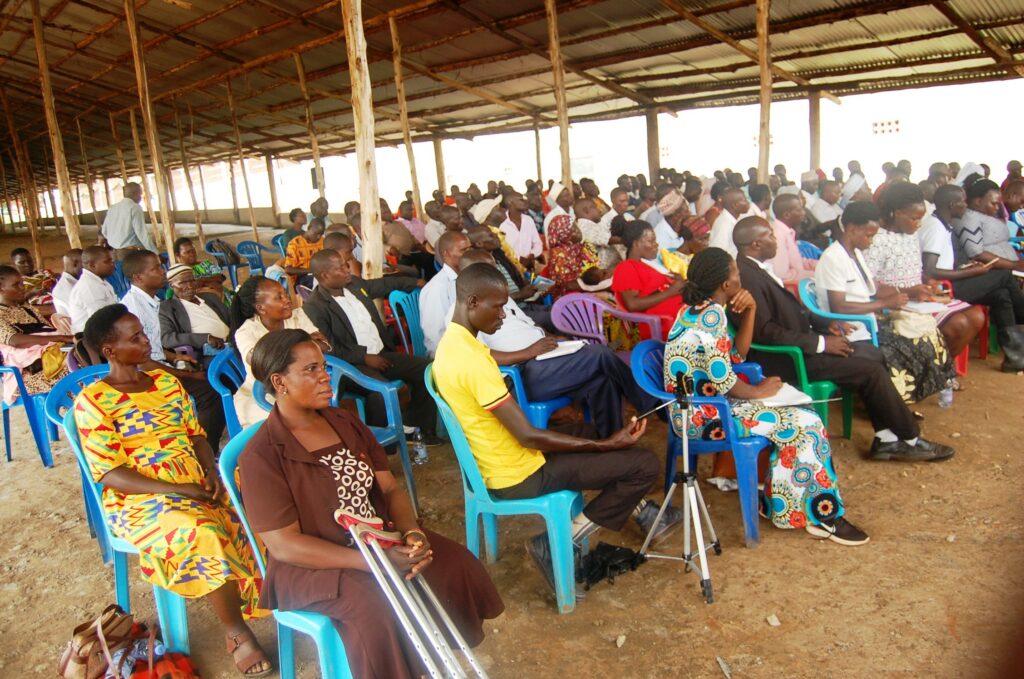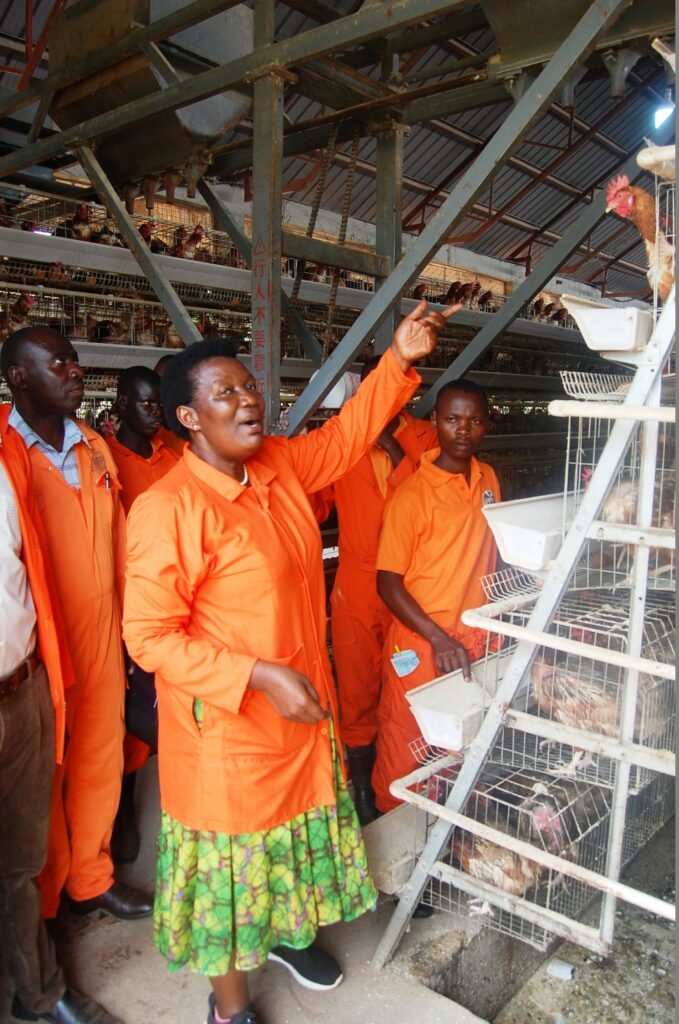By George Bita and Moses Bikala
Although some farmers have of late shunned away from poultry keeping over high feed costs and other challenges, those in Luuka district have been tipped on how to persevere and profit from the enterprise.
According to Esther Mbayo, the district woman MP, the way poultry business is run determines a lot as to how the farmer would benefit from it.
Mbayo who was meeting over 200 farmers from the area at Busalamu town council tipped them on some of the ways to keep birds and harvest money from the business.
Genesis
Mbayo assured farmers that she was in the right position to give them information since she is one of them.
Mbayo , a farmer herself owns Akubuza farm enterprises that of late boasts of having 20,000 layers.
Mbayo urged farmers to utilise the cage system of farming instead of deep litter since most of the by- products like waste can be sold off or used on a farm for purposes of making manure.
“I use bird droppings to add vital nutrients to my soil. This makes it easy to grow matooke and other crops with high yields,” she emphasised.
Sugarcane curse?
Mbayo discouraged local farmers from growing sugarcane on their entire land with no space left for other crops.
According to her, this is one sure way of making the entire Busoga sub-region prone to food shortage.
Stephen Wakaza, the Luuka district chairman said almost half of the farmland in the local government is being used to cultivate sugarcanes.
“It is like a curse to us and something needs to be done to change the mindset. Some people have even hired out their land to those planting sugarcanes leaving them with no land to grow food crops,” he claimed.
Mbayo implored the farmers to opt for poultry farming since if it is handled with care one can realise huge profits compared to sugar cane growing.
“How much money can one realise from the sale of one tonne of sugar cane which takes almost three years to mature?”she asked.

Good farming practices
Mbayo said after a period of two days almost 500 kilograms of chicken droppings is collected from the farm and taken to a solar drier churned into manure sold off at shillings 10,000 per kilogram.
“In case I was using the deep litter system it would not be possible to collect all that waste and reap more profits that have helped me clear most of the utility bills,” she disclosed.
Community correlation
The project set up with support of her husband Wilson Mbayo also employs 20 youths offering both skilled and unskilled labour.
“My neighbours purchase poultry products like eggs at farmgate price. This ensures good neighbourliness,” she notes.
Poultry products
Mbayo said at first securing a market for the poultry products was difficult but it became easier upon getting contacts of customers she had supplied earlier like eggs.
“I could call back and ask whether they needed more products and they made more orders,” she said.
She said currently customers make orders before and demand is too high yet the supply is low.
Farming tips
Engineer Wilson Mbayo , her husband, urged farmers to always seek knowledge about chicken rearing by reading extensively besides attending farmers training locally and abroad in case they are to become successful.
He attributed the increasing cases of mortality rate of chicken on most farms to failure by farmers to maintain hygiene besides low inspection of the state of their cages and staff.
“Most farmers have always just ignored the need to check what’s going on their farms. Thereby abandoning this crucial matter to their employees “he warned.
He said to ensure all by-products on the farm are put into proper usage, maggots that later develop from the chicken droppings while in the solar drier are subsequently sold off to farmers to feed fish.
Joshua Kaggwa, an instructor with Bio-safety campaign Uganda urged farmers not to allow visitors onto their farms or use preventive measures like washing hands at least three times with disinfectants.
He encouraged wearing protective gear like gum boots and overcoats to avoid infections of their birds.
“The vehicle parking lot should also be a distance away from the birds for purposes of safety,” he cautioned.
Kaggwa said rearing chicken is a very profitable job that needs to be handled with care since any mistake done can cause a very big loss.
“You should know that one single hen that gets infected with either Newcastle disease can lead to a very huge loss that you will leave to regret “he said

Trainees talk
John Walubi a chicken farmer from Kamango village, Waibuga Sub County promised to utilise skills acquired to increase the stock on his farm to realise more output.
“I have been getting an average of 10 trays of eggs from the 300 chicken I rear but with the knowledge acquired I want that to be increased to at least 20 trays “he pledged
Penina Kisibo a poultry farmer in Busalamu town council urged women to embrace chicken rearing instead of relying on handouts from their spouses in order to improve on their household incomes.
Kisibo who has been rearing 100 local chickens said she had now acquired skills to also take up rearing layers that can be used for the purpose of sale of products like eggs within a very short period of time.
Haruna Muziru, the LC3 chairman of Busalamu town council, warned farmers against using anti retroviral drugs (ARVs) for purposes of fattening chicken and pigs saying it poses a serious health risk to humans in future.
Muziru wondered whether continuous use of ARVs on farms to reduce fattening period of pigs and chicken cannot interfere with the medication of those already using ARVs.
Wakaza urged farmers to form SACCOs in order to easily access much-needed funding from the government.
He said the government has always failed to fund poultry farmers in the entire Busoga sub region since they have declined to form associations that can help them lobby for funds jointly other than on an individual basis.
“Government is ready to only deal with farmers who are united other than on an individual basis,” he said.
Future plans
Mbayo urged farmers to always think about the future as they go about their farming businesses saying not being foresighted often lead to business collapse.
She revealed that among her plans is one of increasing the number of layers so as to meet demand on the available market plus exporting to neighboring countries like Kenya and Tanzania.
She encouraged farmers to utilise parish development model funds towards setting up poultry projects in case they are to realise profits.





